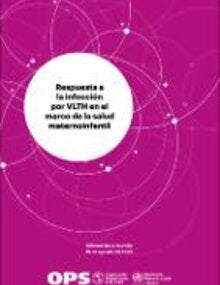This workshop discussed “The Response to HTLV in the Framework of Maternal and Child Health” in the Americas. HTLV-1 impact is broad and significant, however, there are effective interventions to prevent transmission, particularly mother-to-child. Barriers that hamper the implementation of policies targeting mother-to-child transmission of HTLV-1 were identified, and strategies to overcome them were discussed. The framework for the elimination of mother-to-child transmission of HIV, syphilis, hepatitis B, and Chagas disease (EMTCT Plus) represents an opportunity to advance the response to HTLV-1. The integration of HTLV-1 into the sexually transmitted infections program, the recommendation of HTLV-1 antenatal screening, provision of formula for babies born from seropositive women, and awareness campaigns are examples of good practices that can be considered as part of the package of services included into the EMTCT Plus framework. Additional countries expeciences include development of national clinical guideline for HTLV-1, which includes recommendation of exclusive formula feeding for babies born from mothers living with HTLV-1 and the development of economic analysis focusing on HTLV-1 response. PAHO’s continuous support was unanimously identified as crucial to the progress of this agenda. The definition of baselines, milestones, and targets for the response to HTLV-1 focusing on the elimination of mother-to-child transmission are necessary next steps. To achieve additional progress in the region, it is essential to increase awareness, to foster collaboration, and to stimulate research on prevention of mother-to-child transmission of HTLV-1. This report summarizes key discussion points for the implementation of public health policies to eliminate mother-to-child transmission of HTLV, and the collaborative work needed to promote the implementation of such policies. |

